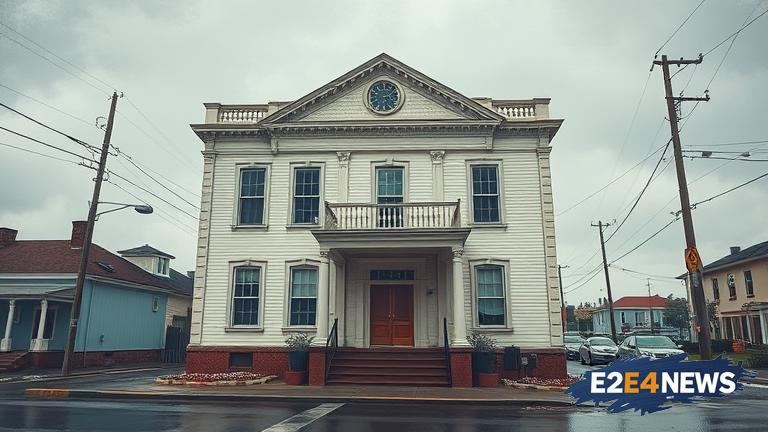Hurricane Katrina, which made landfall in 2005, was one of the deadliest and costliest natural disasters in the history of the United States. The storm’s impact on New Orleans was particularly severe, with widespread flooding and damage to the city’s infrastructure. In the aftermath of the disaster, the city’s public defender office was faced with unprecedented challenges. The office, which was already underfunded and understaffed, was tasked with handling a massive influx of cases related to the storm. Despite these challenges, the public defender office used the crisis as an opportunity to reform and improve its services. The office implemented new policies and procedures, including the use of technology to streamline case management and improve communication with clients. The office also prioritized community outreach and engagement, recognizing the importance of building trust with the citizens it served. One of the key reforms implemented by the public defender office was the creation of a client-centered approach to representation. This approach focused on providing individualized attention and support to each client, rather than simply processing cases through the system. The office also expanded its services to include advocacy and support for clients beyond the courtroom. This included helping clients to access social services, such as housing and employment assistance, and providing support for clients who were struggling with mental health and substance abuse issues. The reforms implemented by the public defender office were driven by a commitment to justice and equality for all citizens. The office recognized that the criminal justice system disproportionately affects marginalized communities, and sought to address these disparities through its work. The office also prioritized diversity and inclusion, recognizing the importance of having a staff that reflects the community it serves. Today, the New Orleans public defender office is a model for other cities, demonstrating the potential for reform and improvement in the delivery of public defense services. The office continues to face challenges, including funding constraints and high caseloads, but its commitment to justice and equality remains unwavering. The legacy of Hurricane Katrina can be seen in the office’s ongoing efforts to innovate and improve its services, using technology and community engagement to drive positive change. The story of the New Orleans public defender office serves as a reminder of the importance of resilience and adaptability in the face of adversity. It also highlights the potential for crisis to drive positive change, and the importance of prioritizing justice and equality in all aspects of the criminal justice system. In the years since Hurricane Katrina, the public defender office has continued to evolve and improve, driven by a commitment to serving the citizens of New Orleans. The office has expanded its services to include specialized units, such as a juvenile defense unit and a mental health unit, and has implemented new initiatives to address the root causes of crime. The office has also prioritized community engagement, recognizing the importance of building trust and partnerships with the citizens it serves. Through its work, the New Orleans public defender office is helping to create a more just and equitable society, one that prioritizes the needs and rights of all citizens. The office’s story serves as a model for other cities, demonstrating the potential for reform and improvement in the delivery of public defense services. It also highlights the importance of prioritizing justice and equality in all aspects of the criminal justice system, and the need for ongoing innovation and improvement in the face of evolving challenges and opportunities.
